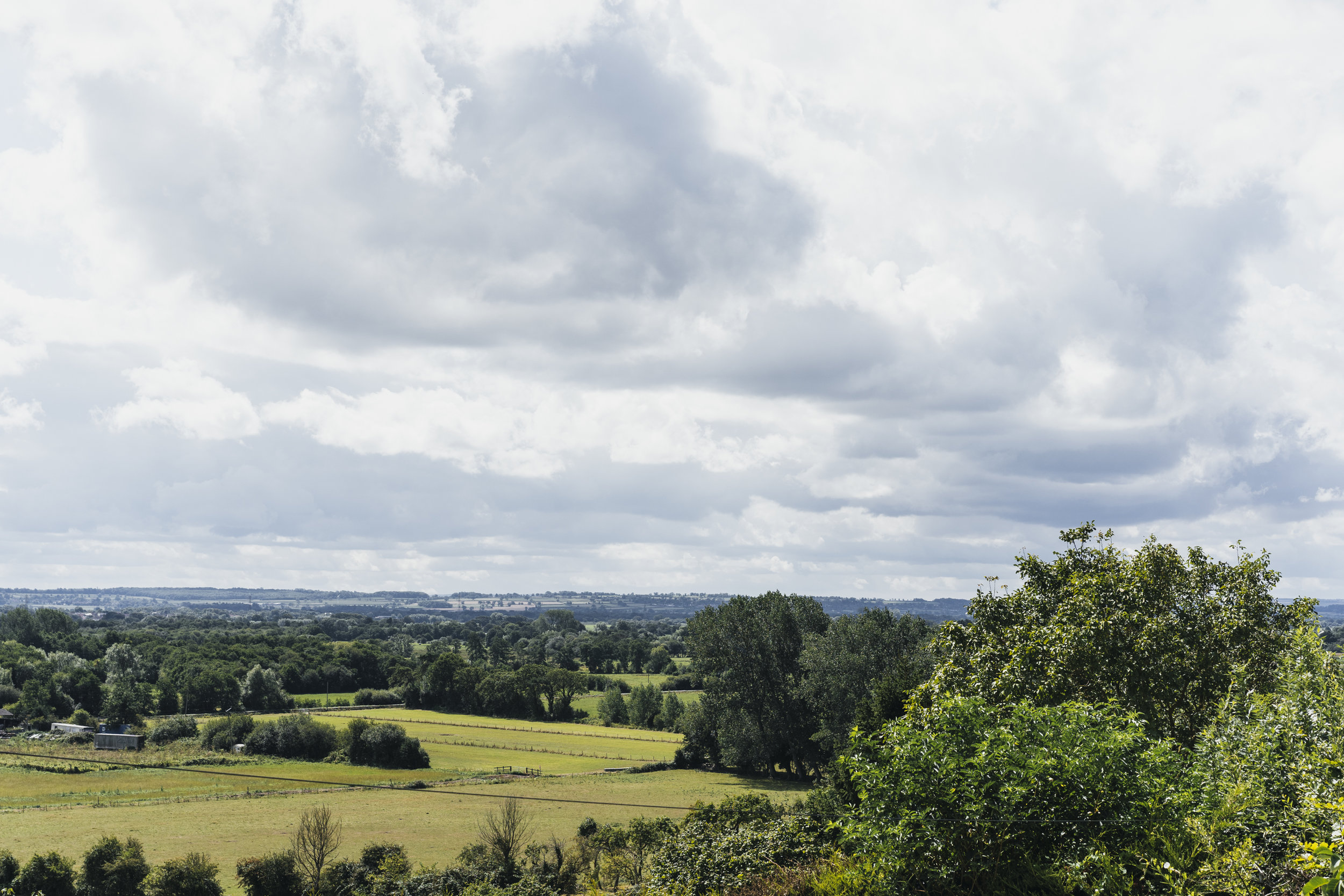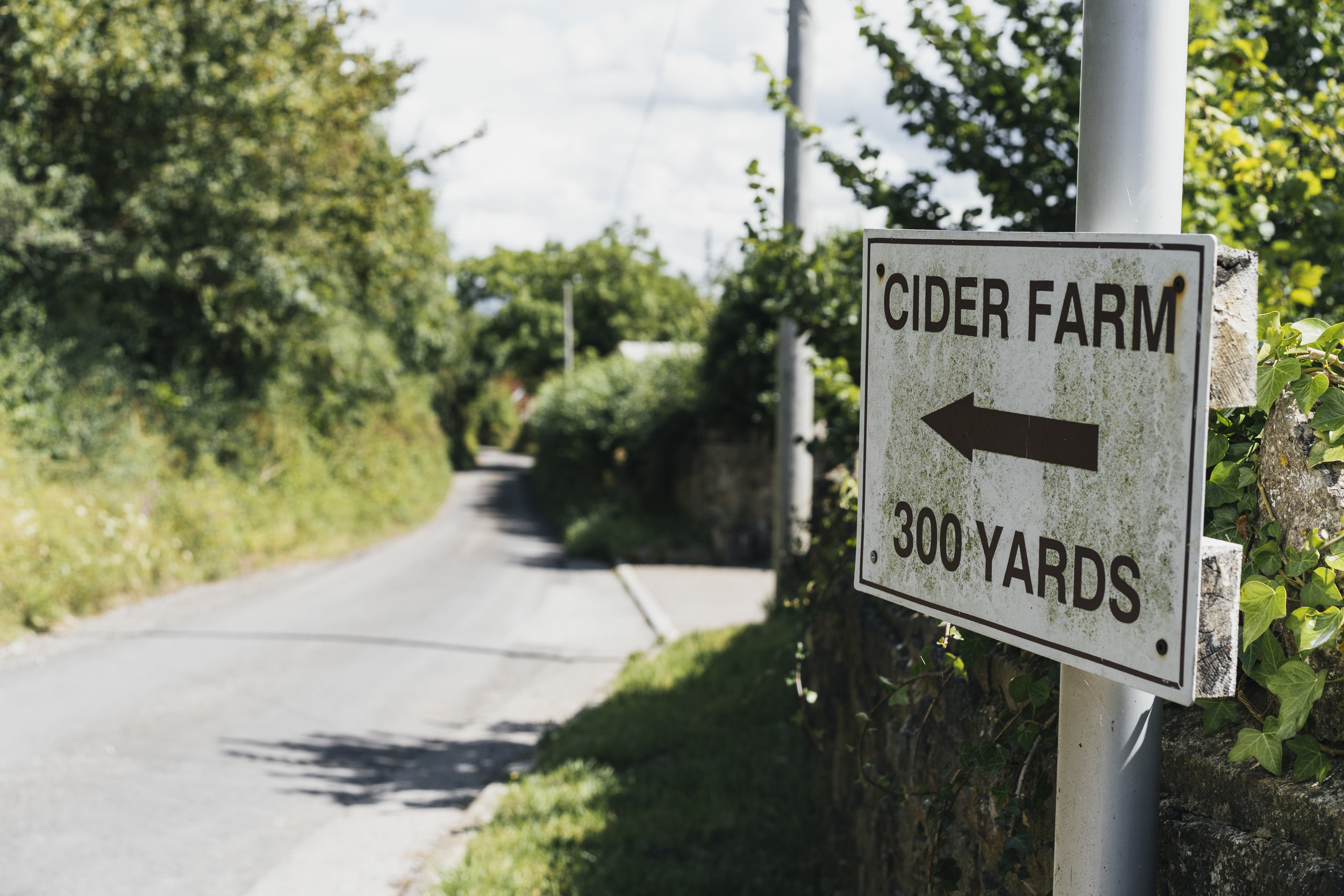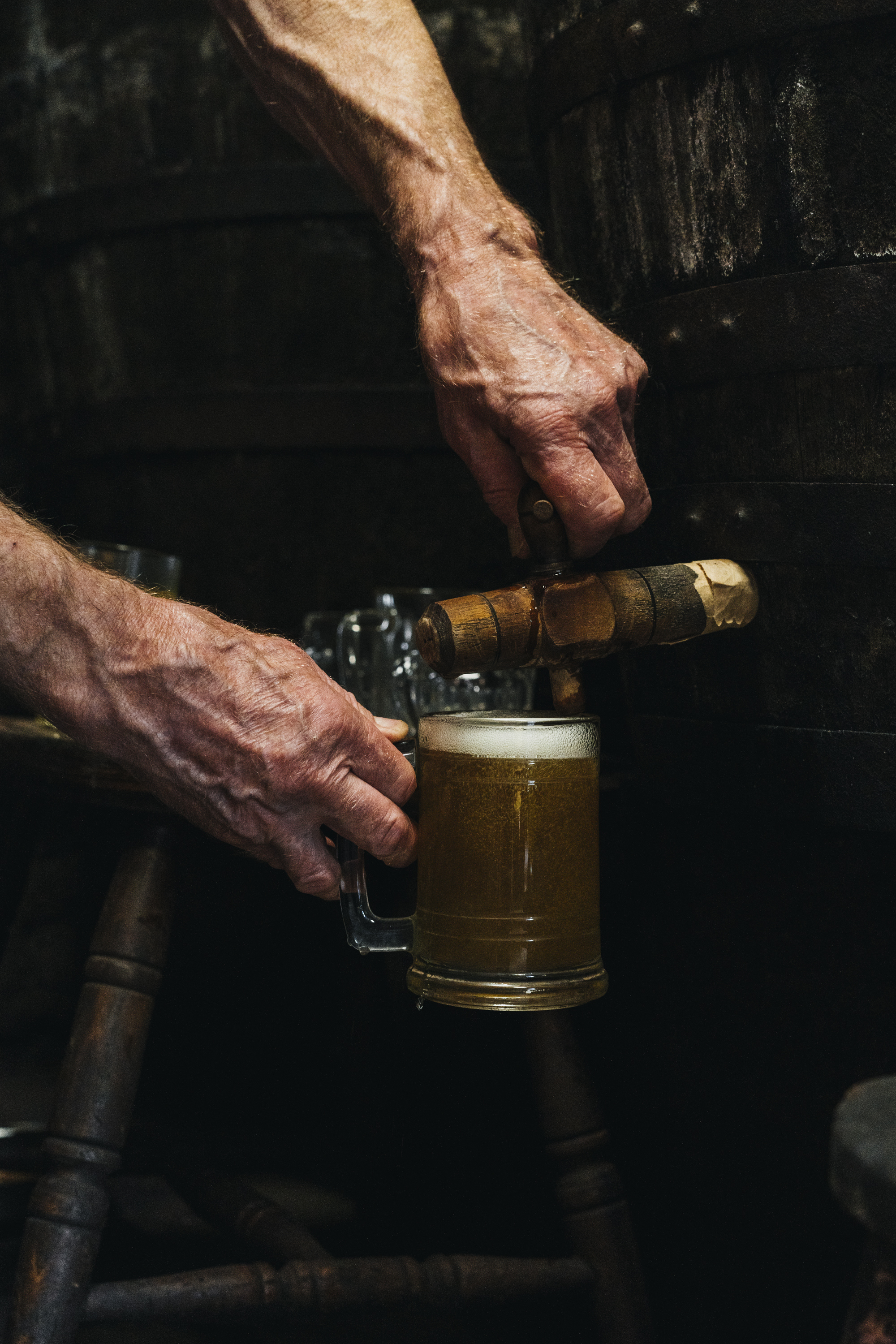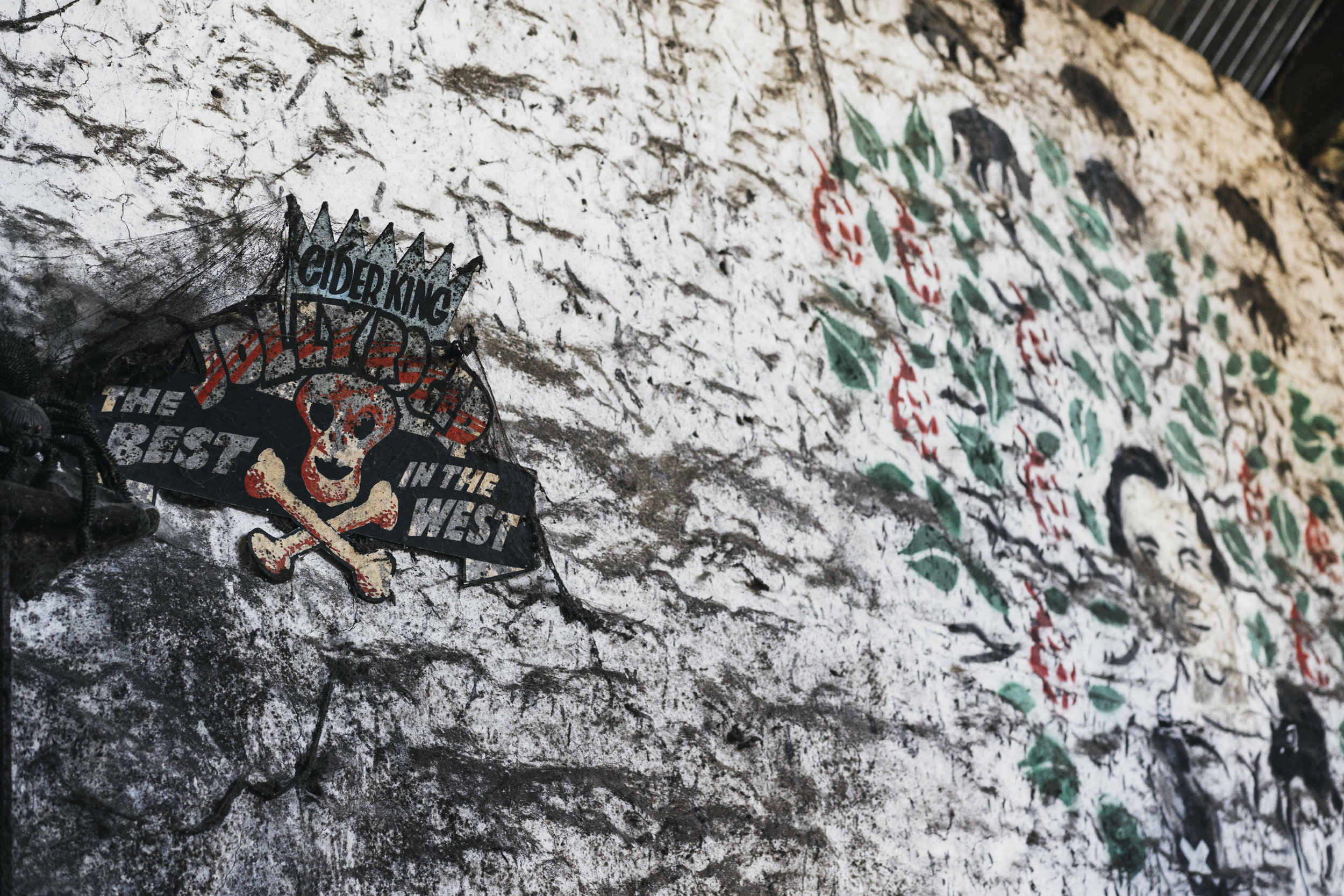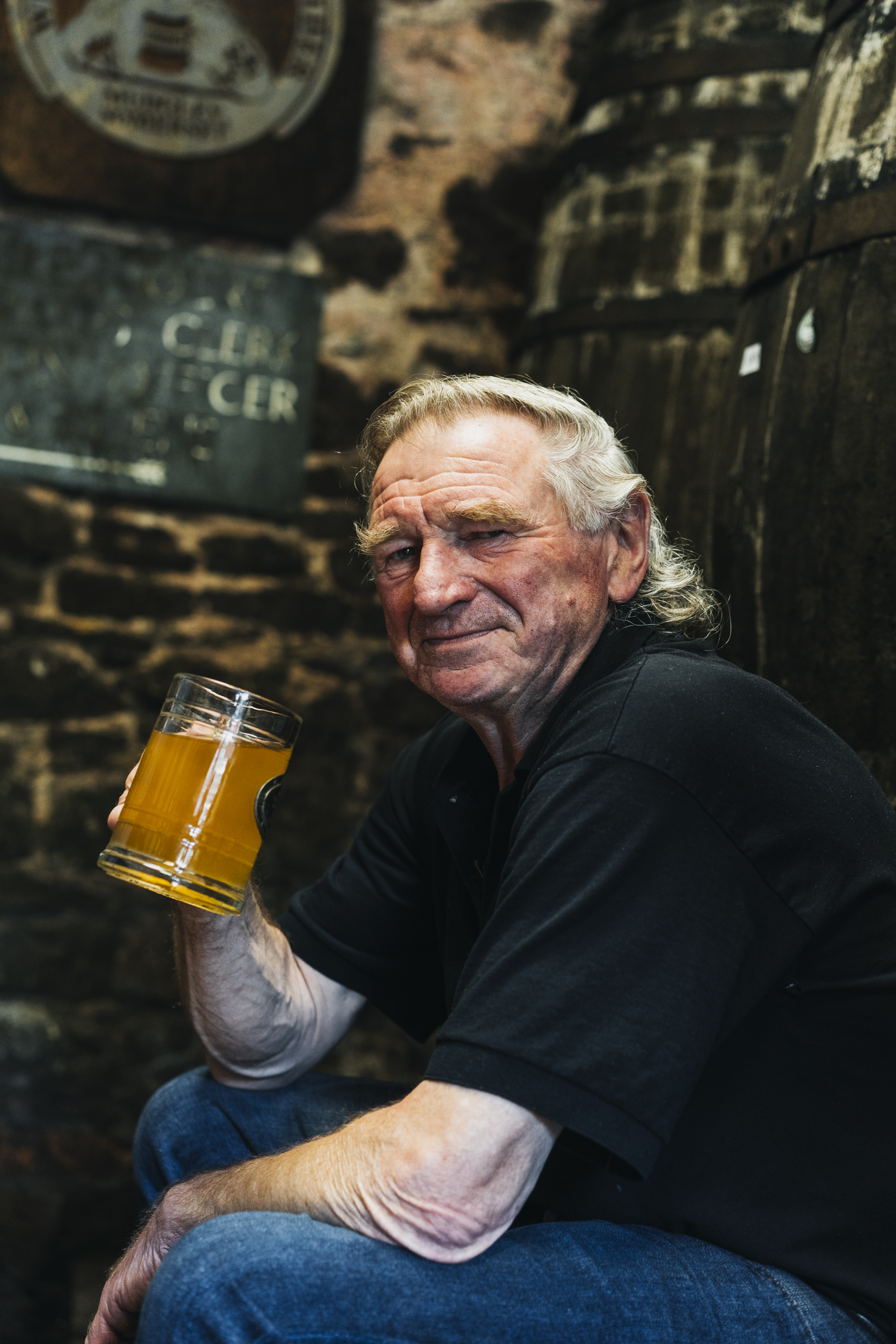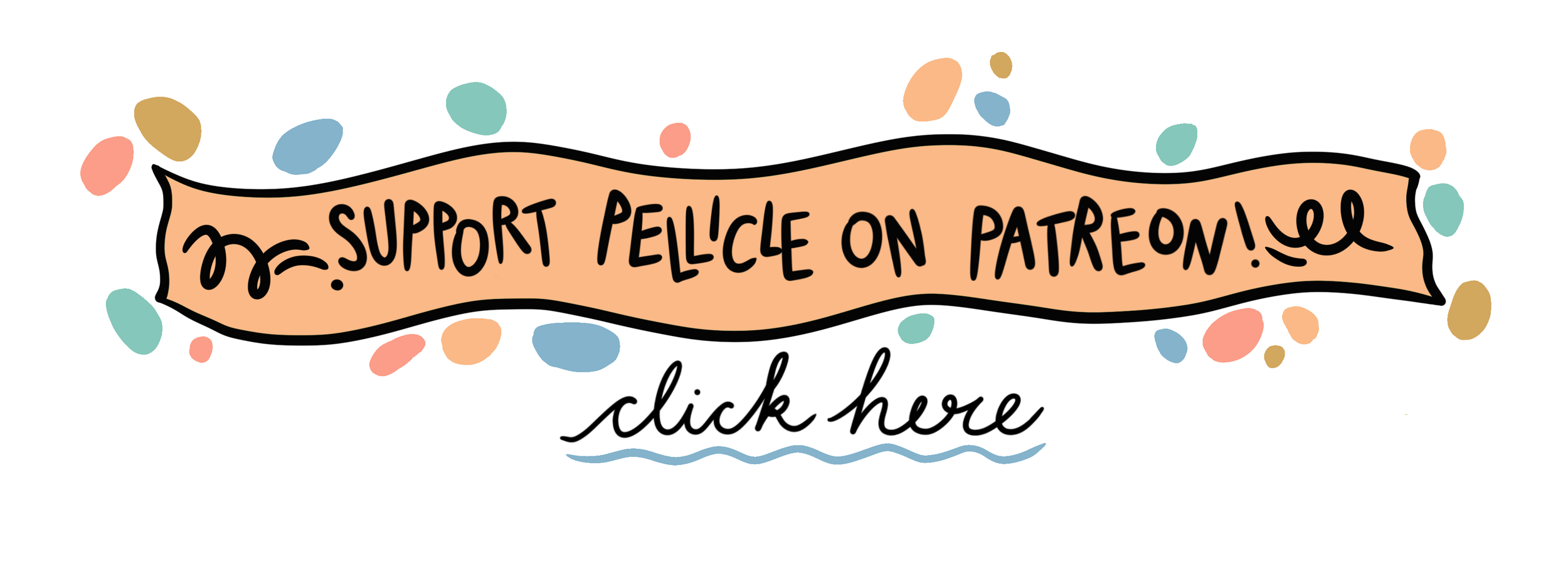A Diamond in the Rough — Meeting Cider Legend Roger Wilkins
Wilkins Cider Farm sits unassumingly amongst the hills of Somerset, at the end of the twisting country road into the village of Mudgley. It’s one of many winding roads I’ve had to drive down to get here. The sun is beaming down when I arrive—a good day for cider apples I later find out from Roger Wilkins, the owner of Wilkins Cider. He says a good summer with plenty of sunshine means a higher sugar content in his fruit.
Photography by Nicci Peet
I hear Roger before I see him, his laugh bellowing from inside his barn. It’s as big and as bold as his reputation. Locally, and to some internationally, he is known as the “cider king,” making proper, traditional farmhouse cider. It’s hazy and dry, but not what you would call rocket fuel. The cider sits somewhere between 6% to 7%, tastes beautiful and is expertly balanced. Where many cider farms progress naturally with technological changes, Wilkins is as close to traditional Somerset cider as you can find, even down to how you drink it.
Roger offers two ciders: dry and sweet. Both sit in big wooden barrels with taps ready for you to serve yourself and there’s no fixed price—you pay as you feel. If you’re after a medium simply mix the two. Then sip your cider in the barn or in the orchard, the way Somerset cider has been enjoyed for centuries. Even how he sells his cider is old school, as you have to ring him directly if you want to make an order.
On the warm Tuesday afternoon I spent with Roger around fifteen or so people ambled through, mostly walkers, some locals and a couple of Australian tourists. His cider draws people from all over the world and he has a myriad of celebrity fans: Lily Allen, Mick Jagger and Johnny Rotten to name a few. He even has an original Banksy spray-painted on his barn wall.
It’s fair to say Roger is nothing short of legendary. But all legends have endings and Roger’s is now in sight. He’s 72 and has no one willing to take over the farm after his retirement. In two years Roger will be winding down his cider production, which to this day he still makes the same way his Grandfather taught him.
Editor’s note — we have left the majority if Roger’s responses in his traditional West Country dialect for accuracy, with some responses amended only for clarity and brevity.
***
NP: Can you tell me how you make your cider?
RW: I just crush the apples up and press ‘em. A ton of apples will run about a hundred and fifty gallons of pure apple juice. I don’t put no sugar, I don’t put no water or anything and I don’t put yeast in it. I ferment it with the natural yeast that's in the skin of the apple so with every different variety of apple you will get a different flavour and tannin coming out of the yeast. All these big companies will use one kind of yeast because they’ve got to keep the flavour all the same. [With mine] every barrel will taste different.
I don’t test nothing. I do everything by smell and taste. I might have one big 300 gallon barrel and split between three, then another one and split between three, and you’ll keep it similar but you won’t get it the same. All cider will come out dry so then when I want the sweet cider, which is virtually all the same cider [as the dry], I put 5 teaspoons of saccharin in a barrel, which is only one teaspoon for 25 gallons. If you sweeten it with sugar because there’s natural yeast still in the cider within three days that’ll go dry again but saccharine is an artificial sweetener so it doesn’t referment.
After I’ve made it I wouldn’t think about selling it until its four months old. Sometimes it could be 18 months, or nearly two years old until I sell it. If we have a bumper crop of apples and make a fair bit, the longer you keep it will get drier which is only natural. Loads of people want it all so sweet today and gassy. I can’t drink sweet cider, see; I drink it rough dry. Up ‘til I was about 23 there weren’t any sweet cider, it were all dry and course I got the palate for dry. I just don’t like it sweet.
NP: What apples do you use?
RW: Cider apples but all mixed up all different varieties. The red ones through there are Tremlett’s Bitter, the redder ones up here are Yarlington Mills and the white ones here are Boomers Norton’s [Editors note—he is referring to the Bulmers Norman variety]. Then there’ Brown’s Apples, Michelin, [a] few Kingston Blacks—I don't know if he’s got anything on the tree this time—there's a Morgan’s Sweet [tree] in that corner and they only crop every other year, so if you get them this year you won’t get any on the tree next year. You can eat ‘em Morgan’s Sweet, in my opinion that is the only apple you can eat that will make decent cider.
““Up ‘til I was about 23 there weren’t any sweet cider, it were all dry and course I got the palate for dry. I just don’t like it sweet.””
NP: Do you graft any of your trees?
RW: I don’t, no, ain’t never done it. I just buy the trees. It’s got to the point now where there ain't much point setting anymore now. Years ago [an] old bloke come in here and he said “what you setting those trees for your time of life?” I said “me son, [if] me grandfather hadn't set ‘em I wouldn’t of had nothing, and if I don’t set em my young’uns ain’t gonna have nothing.”
NP: You mentioned earlier you buy apples off other farms as well, what do you get from them?
RW: I’ve been having them for 50 years, so I know roughly where the apples are. Good apples make good cider. I’ve had arguments with one or two people about single variety. You won’t get single varieties [that] taste the same. You could have a variety of apple out of my orchard, go five miles out the road or 10 miles out the road and have the same variety of apple and that will taste different. Because the soils different, the climates different.
NP: Just like wine, right?
RW: Yeah, just like wine!
NP: You learned all this from your Grandad?
RW: I’ve drunk cider ever since I were 5 years old, and course I drunk it all me life. Then when I left school, well, before I left school I used to help me Grandfather cos he was crippled with arthritis, he had bad hips. He died when I was 21, I’ll be 72 this year. So then I learned it all off of him right up until he died, then I just carried it on the same. But like I said, there's not many places you can get proper cider today. You’ll never get a headache or hangover with this because there's no [additives] in it.
NP: Not to tempt fate but what's going to happen when you, err...
RW: I don’t know. Me grandson... I’m thinking about chucking it in, in two years time. I’ve got to do it again now because I’ve bought all me apples and I wouldn’t go and let nobody down. So when I make it and what cider I got in stock I got enough here for two years. If anybody changes their mind and wants to take it on it's up to them, but if not I shall still make cider ‘cos I will drink it ‘til I die.
I like cider, I’m a cider man. I shall still get a few come in for cider and a few locals, but I’ll have to stop doing all the pub deliveries and sending it out. Well, I don’t know, two years anything can happen.
NP: How long has this farm been in your family?
RW: 1917 when me grandfather bought it, First World War. Mother were born in the house Christmas Day 1917. I was s’posed to be born Christmas Day 1947. But I went overdue; I was born on the 30th of December.
NP: Have your family been making cider here since they bought the farm?
RW: The house, it was probably a mud house and then knocked down and rebuilt in 1847. The house is actually 100 years older than me so its 172 year old now but we’ve got papers going back to 1300 and something and 1500 and something. The orchard I got up there in 1300 and something the papers show it was all [woodland] and I s’pose they had to have a wood next to their house ‘cos that was the only heating they had. They had to use firewood. Then in 1500 and something about a quarter of this orchard then was apple trees and three quarters was still wood so they must of been making cider back in the 1500s.
NP: Do you see less cidermakers like yourself now?
RW: Years ago there were loads. Just through this road there were seven farms and six made cider. [Back then] you had to make cider for the workers that's what the wages were and the workers would go where the best cider was ‘cos—I’m going back before my time—I know the man that come out the army, he had to go to war and all. He used to work for me Grandfather and he said many a time he said to me, “Roger, that were the best farmer I ever worked for.”
In they days you’d sit in the barn and eat your food and old Bill Roe said, “one thing with your Grandfather is that he’d have us in the house and we’d sit down at the table and eat the same food he was having. If he was having roast beef or ham or lamb or anything we all had the same.” He said he fed us the same as he fed himself course gave them cider, cheese, potatoes and all that, you didn’t want wages years ago cos you didn’t get no bills.
NP: How many farms are there around here now?
RW: There’s only two, three of us through here actually farming, all the rest is gone.
NP: Are you the only one that does cider?
RW: Through here yeah. Next one is down—I don’t know if you’ve seen the Sands cider festival—that’s a mile and a half down the road, but he’s going to give it up. He started making cider there a few year ago and he said, “Oh Roger I heard there was some money in this job.” And I said well I’ve been in it all me life, you’ll get a living [but] you ain’t going to make no big money.



